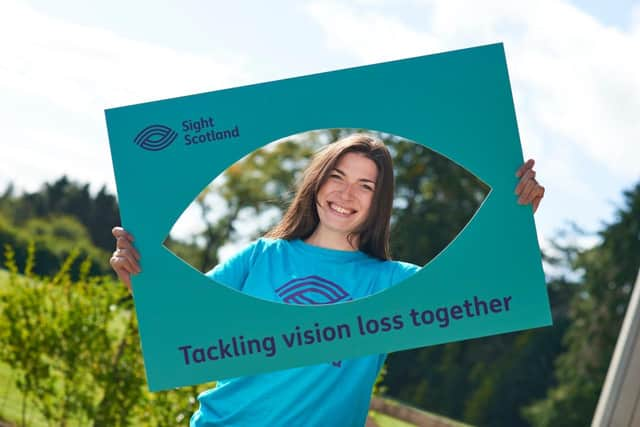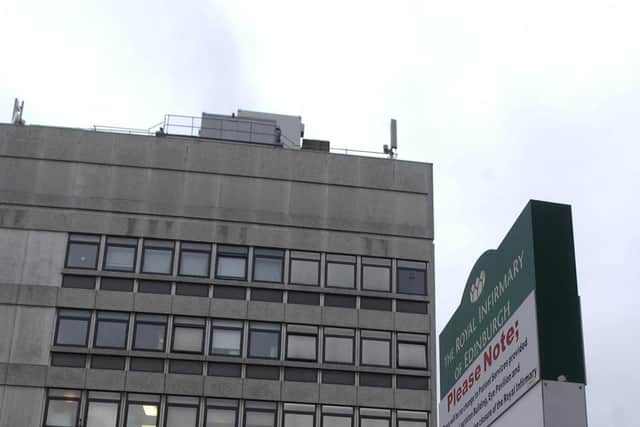Support for blind people ramped up as two charities take on services
and live on Freeview channel 276
Visibility Scotland will provide the eye clinic patient support service at the crisis-hit Princess Alexandra Eye Pavilion, delivering face-to-face or virtual help to patients over the age of 16.
Under a three year Edinburgh Health and Social Care Partnership’s (EHSCP) contract, partners Sight Scotland will provide a rehab and mobility service remotely, taking over from providers RNIB.
Advertisement
Hide AdAdvertisement
Hide AdThe charities said the contract allows them to extend support to hundreds more people in the capital.


It comes amid uncertainty for the pavilion, after the Scottish Government has said it won’t fund a new replacement hospital. NHS Lothian is reviewing provision of eye services in the region but it’s understood services currently provided at the pavilion will be dispersed to Livingston and across the region.
Patients campaigning to keep the pavilion have voiced fears over plans to disperse services, saying it would mean major disruption, anxiety and travel problems.
But Visibility Scotland said their patient support team at the pavilion will also help connect patients between the clinic and community-based services with other local and national organisations.
Advertisement
Hide AdAdvertisement
Hide AdUnder the new EHSCP contract Sight Scotland will deliver a rehabilitation and mobility service remotely via telephone and video calls, until they can provide home visits and face-to-face support when restrictions allow.


Rehab service includes mobility training for safe and independent travel, help with skills like cooking independently and training in using equipment and digital technology.
In January Sight Scotland launched a new freephone in Edinburgh and lothians helpline provide expert advice and practical and emotional support to people with sight loss as well as relatives, carers and friends.
Army veteran Edward Rushworth, 91, from Edinburgh, said rehabilitation helped him to regain independence.
Advertisement
Hide AdAdvertisement
Hide AdEdward said: “My sight loss started with glaucoma. I’m now effectively blind in my right eye and have lost around 20 percent of my sight in my left eye.
“I got help with some cane training before the pandemic set in. An officer supported me to try different canes with and gave me some terrific extensive training with the long cane, including advice for things like crossing the road, which made me feel very confident with it. I don’t use my long cane all the time, but I will take it out with me occasionally in case of trip hazards and I’m happy to be able to use it. It does give me some independence back."
Mark O’Donnell, Chief Executive of Sight Scotland, said: “Sight Scotland has provided life-changing support, education and learning to people with sight loss for over two centuries and we are looking forward to reaching out to even more people with our provision of the Visual Impairment Adult Rehabilitation and Mobility Services. Sight loss impacts people in different ways, and we are dedicated to working closely with each individual to provide them with support to help them reach their own goals and maintain their independence.”
Laura Walker, Chief Executive of Visibility Scotland, said: "Visibility Scotland have designed and delivered Patient Support Services for over 19 years and we are very excited to join the team at Edinburgh’s Princess Alexandra Eye Pavilion.”
A message from the Editor:Thank you for reading this article. We're more reliant on your support than ever as the shift in consumer habits brought about by coronavirus impacts our advertisers.If you haven't already, please consider supporting our trusted, fact-checked journalism by taking out a digital subscription.
Comment Guidelines
National World encourages reader discussion on our stories. User feedback, insights and back-and-forth exchanges add a rich layer of context to reporting. Please review our Community Guidelines before commenting.